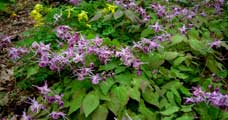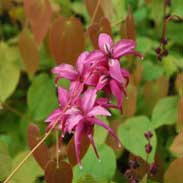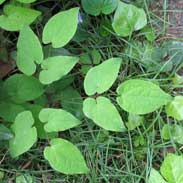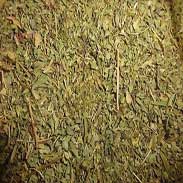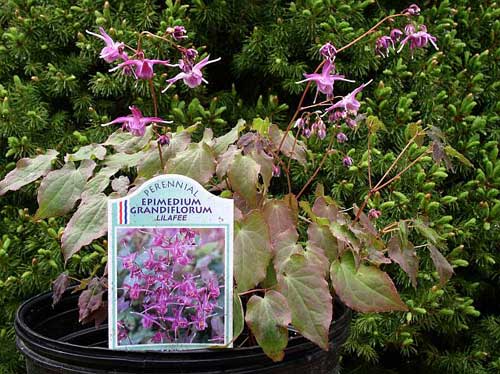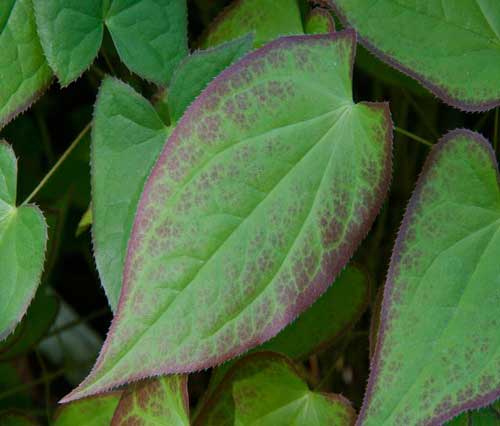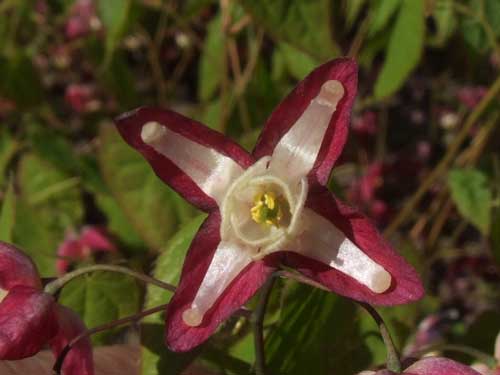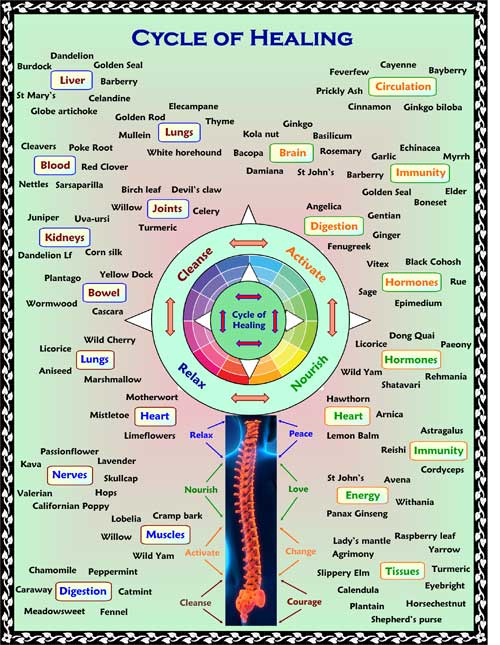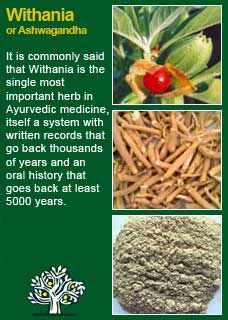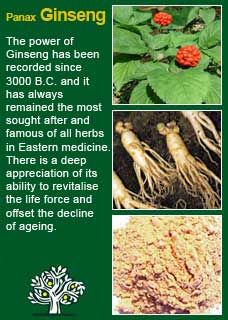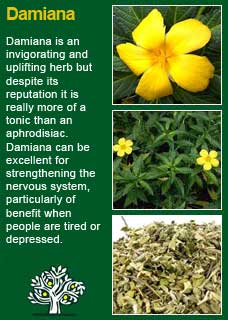
|
|
||||
| Our Pages ABOUT CONSTITUTIONAL MEDICINE
|
Epimedium has a long history of use in traditional Chinese medicine for erectile dysfunction and to enhance sexual energy. It has historically been seen as a herb for men though in modern times women have also begun to use it for restoring a low libido. Whilst a traditional use of any herb going back thousands of years should be met with an attitude of respect the area of sexual health, like weight loss or baldness, has no doubt always been rife with charlatans with no qualms about exploiting people's vulnerabilities. It is therefore encouraging to see that there has been a reasonable level of scientific research to support Epimedium's traditional usage.
~ Epimedium is traditionally used to increase fertility. A controlled trial suggests that Epimedium might improve sexual performance and quality of life in patients with renal failure on chronic hemodialysis (Liao, H. J., Chen, X. M., and Li, W. G. [Effect of Epimedium sagittatum on quality of life and cellular immunity in patients of hemodialysis maintenance]. Zhongguo Zhong.Xi.Yi.Jie.He.Za Zhi. 1995;15(4):202-204) ~ A randomized, double-blind control trial suggests that Epimedium-derived phytoestrogen flavonoids (EPFs) can significantly improve bone density (Zhang G, Qin L, Shi Y. Epimedium-derived phytoestrogen flavonoids exert beneficial effect on preventing bone loss in late postmenopausal women: a 24-month randomized, double-blind and placebo-controlled trial. J Bone Miner Res 2007;22:1072-9) ~ A randomized control trial suggested that Epimedium combined with Chinese yam may improve symptoms and quality of life in patients with moderate-to-severe chronic obstructive pulmonary disease (COPD) (Zhao YL, Song HR Fei JX Liang Y Zhang BH Liu QP Wang J Hu P. The effects of Chinese yam-epimedium mixture on respiratory function and quality of life in patients with chronic obstructive pulmonary disease. J Tradit Chin Med. 2012;32(2):203-207) ~ A randomized control trial suggests that horny goat weed extract may have beneficial effects on sex hormone and lipid levels in postmenopausal women (Yan, F. F., Liu, Y., Liu, Y. F., and Zhao, Y. X. Herba Epimedii water extract elevates estrogen level and improves lipid metabolism in postmenopausal women. Phytother.Res. 2008;22(9):1224-1228) Similar to the drug viagra, there is an active compound in Epimedium that inhibits a substance (phosphodiesterase) which then, through a series of complex steps, relaxes and increases blood flow to where it is needed. The active ingredient icarin has been identified as the element within Epimedium that achieves this action. ~ the authors, titles and where-and-when published of nearly 80 further studies and articles on Epimedium are listed in a PDF found here
Epimedium has been extensively used in traditional Chinese medicine and has not been associated with the risk of adverse effects in their literature. There is one report of a 66-year old man developing a rapid heart-beat and developing symptoms akin to a manic episode but it is not clear how much he was taking or for how long (Partin JF, Pushkin YP. Tachyarrhythmia and hypomania with horny goat weed. Psychosomatics . 2004;45:536-537). Epimedium may lower blood pressure if used consistently over time and if a person using it starts to feel dizzy or faint-headed after a while then they should get their blood pressure checked. Epimedium is not a herb one could ever imagine giving to pregnant or breast-feeding women let alone the young but from my reading of the literature as well as clinical experience I do not think this is a herb that should have any particular worry to accompany its normal use.
For some years now, against this proven and safe way of herbalism, there has been a rising tide of excessive caution and scare-mongering in many parts of the world. The same authorities that, not so long ago, decried herbal medicines as ineffectual, have now taken up a different adversarial position; that they are dangerous substances that should only be prescribed by Doctors, who of course have zero training in them. Unfortunately, the same unnecessary fear and worry has crept into many natural health websites and popular publications on herbs. Herbs that we have safely used for thousands of years, that have no reports of adverse reactions in the medical literature despite widespread use by millions of people, are suddenly described as contraindicated because of something that should have been seen as completely unimportant, or at the utmost a merely theoretical concern, such as a laboratory study on one of the herb's constituents to use an all too common example. I wonder sometimes if the writers of such articles feel that the herb will be more deserving of respect if it is thought to be a little bit dangerous, in other words more like a drug than something that has simply come out of the earth and been used by ordinary people for generations beyond count. There is just so much misinformation about herbal medicine on the internet now. Ludicrous claims and cautions abound in equal measure; it seems like one group are trying to make money out of the public whilst the other are busily trying to scare them off. I have to believe that the kind of reader who takes the time to read pages on herbs that are as extensive as this one is much less likely to be swayed by marketers or misinformers. I hope that you will keep your wits about you if you get conflicting opinions from people who have never really got to know these herbs, who have never worked with them, or learned how to use them safely and effectively. I want to remind you that the reason that herbs can never be patented and owned by any individual or corporation is because they are, and always will be, the People's medicine. They belong to all of us and it is my great hope in sharing this work that you will learn how to use them wisely for yourself, and the people you care for. Be safe, but do not be afraid.
I always looked at herbal products marketed for men's libido with considerable cynicism because clearly, there are many who will say anything to sell their products. However, Epimedium is one herb that does stand up well to investigation. There is a long tradition of genuine respect for this remedy in Eastern medicine. There is a rich folklore for its positive effects on male fertility in diverse farming communities around the world, and the scientific research shows obvious promise. I have now had the opportunity to test Epimedium out with a good number of patients in my clinic and the feedback has been, for the most part, very good. Men who have had problems achieving or maintaining an erection have told me that it began to help them quite rapidly, both men and women who reported that they had felt their libido had noticeably diminished have been equally pleased with its results. A modern trend has been to use Epimedium as a kind of natural Viagra i.e. as a performance enhancing herb to take in large doses when needed. I have not used this approach with my own patients but rather have followed its more traditional method of more sustained use of around 3-4 mls of the tincture per day, almost always used with other tonic herbs. As with nearly all herbal medicines that are to be taken for a course of time, I think that Epimedium works better in a synergistic manner alongside other herbs, For example, I will typically combine it with some of the great energy and libido tonics such as Withania, Panax Ginseng and Damiana. Given I have nearly always used it in the context of such formulas one could legitimately question whether I am observing the effects of the Epimedium or rather it is one of the other herbs that is making the difference. For those of you reading this for whom this is an academic subject I can only respond with the mildest of defences - I think these formulas probably do work somewhat better than they used to when I didn't have the Epimedium tincture to add. For those for whom this subject is one that they actually have to deal with in their own lives I can assure you that all that matters to me as a clinician is getting a good result, in which case we really don't want to just try one thing at a time to see what happens but rather do the best we can with what we have, within reason, and hope for the best!
Much of the information here about the traditional uses of Epimedium is consistent with the model of thinking whereby one may treat problem A with plant B. There is value in this approach, especially in how it helps us pass on useful knowledge to one another, but it falls short in one vital area; and that is that people are not all cut from the same cloth! Something that works brilliantly for one person may do less for another -- why is this? Part of the reason is that people vary in their constitutions as to whether they are either hotter or cooler and, at the same time, either dryer or damper. This useful and rather fascinating subject is introduced further here Another big part of using the right herb when it is most needed comes from understanding the need to treat what is going wrong for the person that had led up to their getting a health condition. In this light, Epimedium can particularly offer its benefits when an activation is needed in the 'cycle of healing', more about this here
Please understand that I cannot advise you, including on products or dosage, without seeing you in person in my clinic but for ideas
on how you might find a good herbalist in your area read here |
|
|
|
© 2011 R.J.Whelan Ltd
